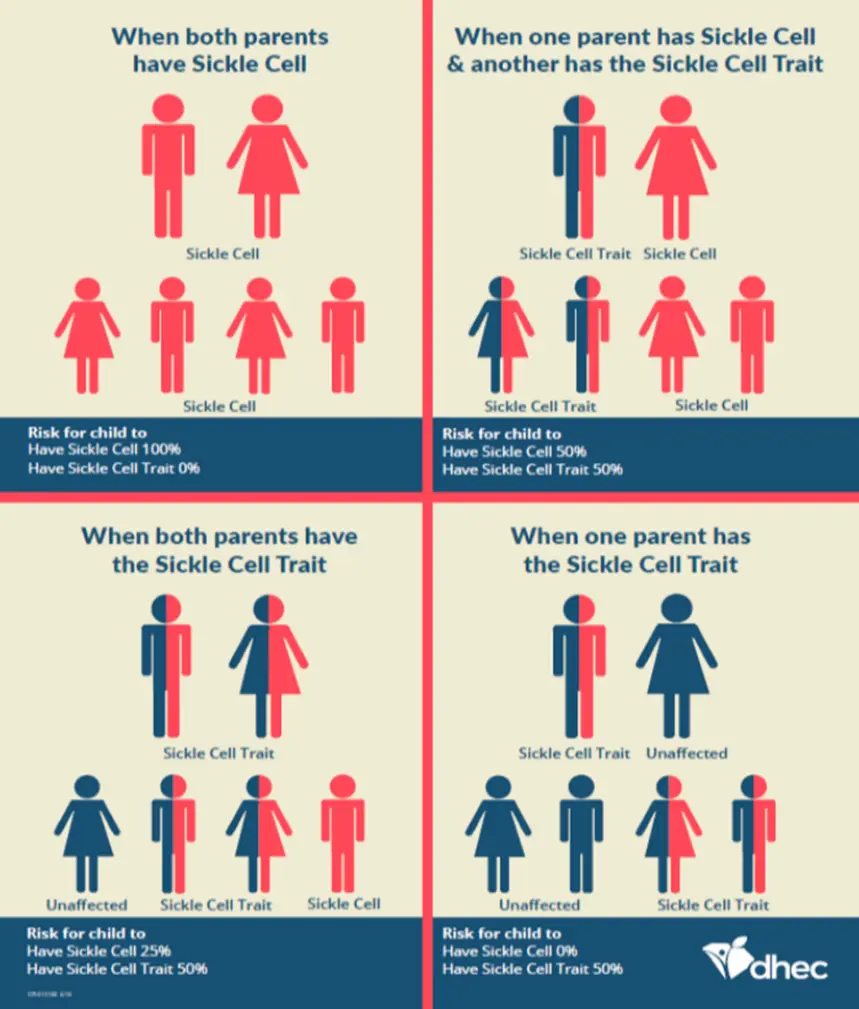In light of our series, Black Voices Within Adoption, AFTH would like to highlight an issue that still impacts the black community today. September is National Sickle Cell Awareness Month. It is designed to bring awareness to the disease’s complications and the ongoing need for research and treatments.
What is Sickle Cell Disease?
Sickle Cell Disease (SCD) is an inherited blood disorder that affects red blood cells by producing abnormal hemoglobin. This hemoglobin often causes the red blood cells to take on a sickle shape, giving the disease its name.
To fully inherit Sickle Cell Disease, both parents of the child would need to have Sickle Cell Traits (SCT) that form the disease.
There are four major variations of SCD:
- Hemoglobin SS Disease
- Hemoglobin SC Disease
- Sickle Beta-Plus Thalassemia
- Sickle Beta-Zero Thalassemia
What are the Complications?
Due to the shape of the affected red blood cells, they often have difficulty passing through blood vessels. This disrupts the blood flow throughout the body, in turn. When the blood flow is blocked, tissue damage can occur along with episodes of pain, also known as “crises.”
Those with Sickle Cell Disease are at a greater risk of developing more severe complications such as Acute Chest Syndrome and Splenic Sequestration. (For a more thorough list, please visit https://www.cdc.gov/ncbddd/sicklecell/treatments.html)
Who does Sickle Cell Affect?
Sickle Cell affects those with ancestry primarily from Sub-Saharan Africa, Spanish-speaking regions in the Western Hemisphere (i.e., Central America, South America), and Mediterranean countries such as Turkey and Greece.
According to the Center for Disease Control (CDC), it is estimated that:
- SCD affects approximately 100,000 Americans.
- SCD occurs among about 1 out of every 365 Black or African-American births.
- SCD occurs among about 1 out of every 16,300 Hispanic-American births.
- About 1 in 13 Black or African-American babies is born with sickle cell trait.
What are the Current Treatments?
To receive proper treatment, it is imperative that one sees a Primary Care Physician (PCP) and hematologist (a doctor specializing in treating blood disorders). Your healthcare providers can help you find the best plan of care for your needs.
For milder cases, pain episodes can be treated with over-the-counter (OTC) medicines such as ibuprofen and acetaminophen. For more severe episodes, pain can be managed with opioids such as morphine and codeine.
In cases that lead to severe anemia, patients may receive a blood transfusion. Clinical trials have shown hydroxyurea has the potential to decrease several complications associated with SCD. Stem cell transplants have proven to cure SCD. However, these transplants have strict requirements for success and could have severe side effects.
As of now, there is no single cure available for Sickle Cell Disease.
Tips for Birth Mothers and Adoptive Parents
Birth Mothers:
- Disclose your family’s medical history with your healthcare providers to the best of your ability
- Strongly consider speaking to a genetic counselor if you believe your family’s genetic history contains inherited conditions. A genetic counselor can provide you with resources and explain the risks of your child inheriting SCD.
- You and the Birth Father should consider taking a blood test to determine if you both have traits that could form SCD.
Adoptive Parents:
- If possible, maintain open communication with your child’s Birth Family.
- Be an active part of the pregnancy at a comfortable level for you and the Birth Parents.
- Please work with your child’s pediatrician to develop a care plan; should they be diagnosed with SCD.
- If your child has been adopted internationally or never received a screening at birth, share your concerns with their pediatrician
- Remain aware of signs indicating Sickle Cell Disease. Most individuals with SCD will begin to show symptoms between five months and one-year-old.
Why it Matters and How you can Help
People with Sickle Cell Disease can live and have healthy lives, but with the right treatment from their healthcare providers. It is crucial to receive screening for Sickle Cell as early as possible. When left untreated, Sickle Cell Disease can lead to life-threatening complications.
You can help bring awareness to SCD and those affected by:
- Continuing to stay updated on new developments
- Following the Sickle Cell Disease Association of America and HHS Office of Minority Health
- Donating blood to the American Red Cross
- Wearing red (the designated color for Sickle Cell Awareness)
- Encouraging your family and friends to educate themselves on SCD
- Using hashtags and posting educational materials on social media
Below is a list of hashtags to use for awareness this year:
| Sickle Cell Disease Association of America | HHS Office of Minority Health |
| #SickleCellMatters
#SickleCellAwarenessMonth #SCDAA2020AwarenessMonth #SCDSCTMatters |
#sicklecellawareness
#sicklecellstories #sicklecelldisease #sicklecell |







